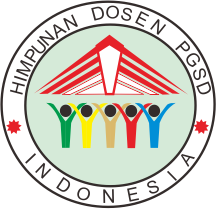The Influence of Supervision, Leadership Style, and Motivation on Primary School Quality
DOI:
https://doi.org/10.30595/dinamika.v17i1.26410Keywords:
Supervision, Leadership Style, Motivation, Primary School QualityAbstract
This study aims to analyze the influence of academic supervision, school principal leadership style, and teacher work motivation on the quality of education in primary schools (SD) in Bergas District, Semarang Regency. This research employs a quantitative approach with a survey design. The sample consists of 180 teachers selected using proportional random sampling from 28 public and 3 private primary schools in Bergas District. Data were collected through questionnaires measuring the variables of academic supervision, school principal leadership style, teacher work motivation, and school quality. Data analysis was conducted using multiple regression to test the influence of the independent variables on the dependent variable. The results show that academic supervision, school principal leadership style, and teacher work motivation significantly affect the quality of education in primary schools in Bergas District. Academic supervision has the greatest influence, contributing 86.4%, followed by the school principal leadership style (82.3%) and teacher work motivation (61.4%). Together, these three variables explain 92.6% of the variation in school quality. This study suggests that school principals should improve the planning of more structured academic supervision, enhance interpersonal relationships with teachers, and strengthen teacher motivation through external rewards and professional development training. These findings provide practical implications for educational policymakers and school leaders to prioritize and implement strategies that can significantly improve the quality of education in primary schools.
References
[1] Timor, Saud, dan Suhardan (2018) Mutu Sekolah” Antara Kepemimpinan Kepala Sekolah dan Kinerja Guru. Yogyakarta: Penerbit Andi.
[2] Sallis, Edward. (2015). Total Quality Manajemen in Education (Manajemen Mutu Pendidikan) (Terjemahan Ahmad Ali Riyadi dan Fahrurrozi). Jogjakarta: IRCiSoD.
[3] Nasution, S. (2015). Pengantar Ilmu Pendidikan. Jakarta: Bumi Aksara.
[4] Timor, Saud, dan Suhardan (2018) Mutu Sekolah” Antara Kepemimpinan Kepala Sekolah dan Kinerja Guru. Yogyakarta: Penerbit Andi.
[5] Ulumudin, I. (2015). Pengukuran Kualitas Pendidikan: Teori dan Praktik. Yogyakarta: Penerbit Andi.
[6] Timor, Saud, dan Suhardan (2018) Mutu Sekolah” Antara Kepemimpinan Kepala Sekolah dan Kinerja Guru. Yogyakarta: Penerbit Andi.
[7] Sallis, Edward. (2015). Total Quality Manajemen in Education (Manajemen Mutu Pendidikan) (Terjemahan Ahmad Ali Riyadi dan Fahrurrozi). Jogjakarta: IRCiSoD.
[8] Ulumudin, I. (2015). Pengukuran Kualitas Pendidikan: Teori dan Praktik. Yogyakarta: Penerbit Andi.
[9] Mulyasa, E. (2014). Manajemen Pendidikan Dasar dan Menengah. Bandung: Remaja Rosdakarya.
[10] Abdullah, M. (2020). Pendidikan dan Pengembangan Profesionalisme Guru. Jakarta: Kencana.
[11] Suryantini, N. (2016). Manajemen Pendidikan dan Supervisi untuk Peningkatan Kualitas Pembelajaran. Jakarta: Rineka Cipta.
[12] Marwati, Hadriana, dan Suarman (2021). Pengaruh Supervisi Akademik Dan Kinerja Guru Terhadap Mutu Pendidikan Pada Sekolah Dasar Di Kota Pekanbaru.
[13] Kumala, D., & Agustina, D. (2018). Style Kepemimpinan dalam Organisasi Pendidikan. Jakarta: Prenadamedia Group..
[14] Thoha, M. (2015). Perilaku Organisasi: Konsep dan Aplikasi. Jakarta: Rajawali Pers..
[15] Fahmi, I. (2013). Style Kepemimpinan dalam Organisasi. Jakarta: Salemba Empat.
[16] Siti, M. (2019). Kepemimpinan Kepala Sekolah: Teori dan Praktik dalam Pendidikan. Yogyakarta: Penerbit Andi.
[17] Kumala, D., & Agustina, D. (2018). Style Kepemimpinan dalam Organisasi Pendidikan. Jakarta: Prenadamedia Group.
[18] Thoha, M. (2015). Perilaku Organisasi: Konsep dan Aplikasi. Jakarta: Rajawali Pers..
[19] Fahmi, I. (2013). Style Kepemimpinan dalam Organisasi. Jakarta: Salemba Empat.
[20] Siti, M. (2019). Kepemimpinan Kepala Sekolah: Teori dan Praktik dalam Pendidikan. Yogyakarta: Penerbit Andi.
[21] Usman, H. (2014). Manajemen Sumber Daya Manusia: Teori dan Praktik. Jakarta: Salemba Empat..
[22] Sutikno, Yadi. (2021). Manajemen Mutu Pendidikan di Lembaga Pendidikan. Pekanbaru: STAB Maitreyawira.
[23] Hoy, W. K., & Miskel, C. G. (2017). Educational Administration: Theory, Research, and Practice (10th ed.). New York: McGraw-Hill Education.
[24] Elva, M. (2019). Pengembangan Sumber Daya Manusia dalam Pendidikan. Jakarta: Kencana.
[25] Hasibuan, M. S. P. (2017). Manajemen Sumber Daya Manusia. Jakarta: Bumi Aksara.
[26] Usman, H. (2014). Manajemen Sumber Daya Manusia: Teori dan Praktik. Jakarta: Salemba Empat.
[27] Sutikno, Yadi. (2021). Manajemen Mutu Pendidikan di Lembaga Pendidikan. Pekanbaru: STAB Maitreyawira.
[28] Hoy, W. K., & Miskel, C. G. (2017). Educational Administration: Theory, Research, and Practice (10th ed.). New York: McGraw-Hill Education.
[29] Elva, M. (2019). Pengembangan Sumber Daya Manusia dalam Pendidikan. Jakarta: Kencana.
[30] Hasibuan, M. S. P. (2017). Manajemen Sumber Daya Manusia. Jakarta: Bumi Aksara.
[31] Sugiyono. (2012). Metode Penelitian Kuantitatif, Kualitatif, dan R&D. Bandung: Alfabeta.
[32] Waluyo, S., Miyono, S., & Abdulloh, M. (2022). Peran kepala sekolah dalam meningkatkan mutu akademik melalui supervisi. Jurnal Pendidikan dan Manajemen, 10(2), 123-135.
[33] Timor, Saud, dan Suhardan (2018) Mutu Sekolah” Antara Kepemimpinan Kepala Sekolah dan Kinerja Guru. Yogyakarta: Penerbit Andi.
[34] Sulastri, S., Nurkolis, A., & Rasiman, M. (2016). Pengaruh kepemimpinan kepala sekolah dan motivasi kerja terhadap mutu sekolah dasar di Kabupaten Jepara. Jurnal Manajemen Pendidikan, 8(1), 45-58.
Downloads
Published
How to Cite
Issue
Section
License
Copyright (c) 2025 Bevy Prihastuti Wulandari, Rosalina Br Ginting, Muhammad Prayito

This work is licensed under a Creative Commons Attribution 4.0 International License.
Authors who publish with this journal agree to the following terms:
Authors retain copyright and grant the journal right of first publication with the work simultaneously licensed under a Creative Commons Attribution License that allows others to share the work with an acknowledgement of the work's authorship and initial publication in this journal.
Authors are able to enter into separate, additional contractual arrangements for the non-exclusive distribution of the journal's published version of the work (e.g., post it to an institutional repository or publish it in a book), with an acknowledgement of its initial publication in this journal.
Authors are permitted and encouraged to post their work online (e.g., in institutional repositories or on their website) prior to and during the submission process, as it can lead to productive exchanges, as well as earlier and greater citation of published work (See The Effect of Open Access).

Dinamika Jurnal Ilmiah Pendidikan Dasar is licensed under a Creative Commons Attribution 4.0 International License.













